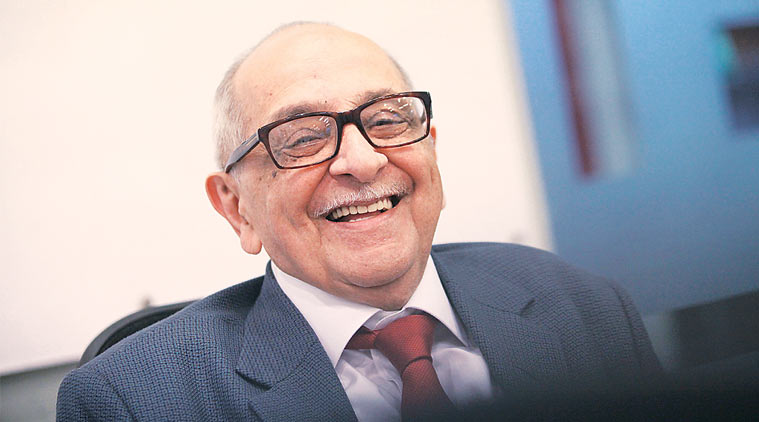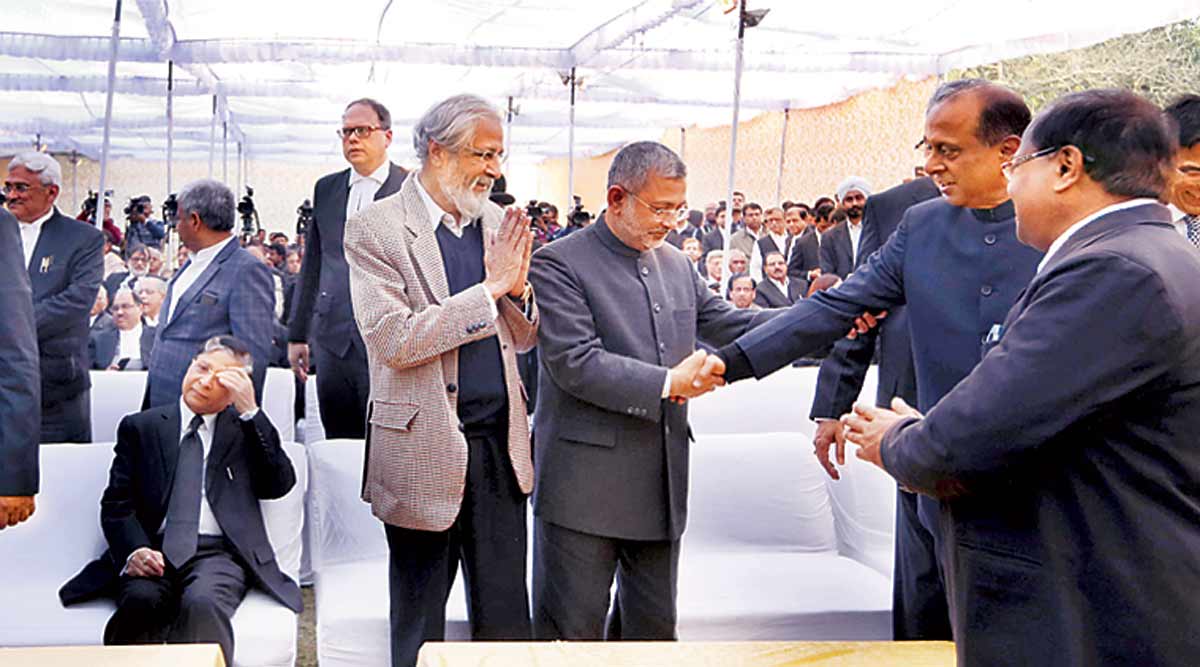 Senior jurist Fali Nariman
Senior jurist Fali Nariman
THERE is complete breakdown in confidence between the Chief Justice of the Supreme Court and his fellow judges, giving rise to lack of accommodation between them but the fact remains that the Chief Justice is the master of the roster and that cannot be changed, senior jurist Fali Nariman has said.
“This has never happened before in all the 67 years I have practised as an advocate. Levels of tolerance have gone down. Lawyers, judges, everybody. The spirit of collegiality which is essential in a Bench as well as in a court has broken down. Upto now, judges by and large followed it. Since I came to Delhi in 1972, I have seen 32 Chief Justices, but I have never seen this before,” Nariman told The Indian Express in his first remarks in several months after recovering from a surgery.
But Nariman also held out a dire warning. If the current squabble in the Supreme Court was not soon settled, “we could be witnessing almost the end” of the epoch that gave the 1973 Keshavananda Bharti judgement, which had ruled 7-6 that the “basic structure” of the Constitution could not be tampered with by any government, no matter its intention.
“Everything got broken up with Keshavananda Bharati.This was the beginning and now we are seeing what is almost the end,” Nariman said. He pointed out that although seven judges had cast their vote in favour of the Keshavananda Bharati judgement, the fact remained that six judges had had a different view about the concept of “basic structure.”
 Justices Chelameswar, Ranjan Gogoi, Madan Lokur and Kurian Joseph held a press conference in New Delhi (Express File Photo/Abhinav Saha)
Justices Chelameswar, Ranjan Gogoi, Madan Lokur and Kurian Joseph held a press conference in New Delhi (Express File Photo/Abhinav Saha)
Drawing upon the Constitution, history, case law and anecdote to drive home the point that the position of the Chief Justice of the Supreme Court is sacrosanct and that the four judges who held an unprecedented press conference in January — Justices Ranjan Gogoi, Jasti Chelameswar, Madan Lokur and Kurian Joseph — should have privately spoken about their concerns to the Chief Justice rather than gone public, Nariman pointed out, “In this branch of activity, you have to lump it. You have to wait till your Chief Justice retires. Fortunately, he retires at 65 years and there is no extension.”
He said he understood that the four judges must have been “at the end of their tether” to hold a press conference in the first place but the fact remained that the Chief Justice has been the Master of the Roster since the Government of India Act in 1935 gave him that authority and he certainly could not be impeached for invoking the authority the position gave to him.
“He is Master of the Roster. You have to first say that he is. Shanti Bhushan has now presented some petition (in this regard). But being the Master of the Roster doesn’t mean that there should be no spirit of collegiality. He must know what the others are thinking.
“I am not disputing that the other judges felt that he was not being fair. That is a grave problem.
 Chief Justice of India Dipak Misra, Justices Madan B Lokur, Kurian Joseph, Amitava Roy at the launch of the Supreme Court Bar Association newsletter in New Delhi. (Photo by Neeraj Priyadarshi/File)
Chief Justice of India Dipak Misra, Justices Madan B Lokur, Kurian Joseph, Amitava Roy at the launch of the Supreme Court Bar Association newsletter in New Delhi. (Photo by Neeraj Priyadarshi/File)
But whatever it is, you can’t impeach him for this. You can impeach him for taking money or something else but you can’t impeach him for saying I am Master of the Roster…The Chief Justice fixes the benches, he has always done that,” Nariman added.
On the next Chief Justice, he said: “Of course, it will be Justice (Ranjan) Gogoi. I don’t think the government will be so foolish so as not to appoint him.”
But he added that the convention that the Chief Justice recommends his successor was broken during the Emergency when Chief Justice A N Ray recommended Justice M H Beg rather than Justice H R Khanna (who gave the noted habeas corpus judgement even though the other judges were against it) and who would have, ordinarily, become Chief Justice after Ray.
“It all comes down to a majoritarian government,” Nariman said, adding, “when you have a majoritarian government, these things happen. When you don’t have a majoritarian government, then people are more careful.”